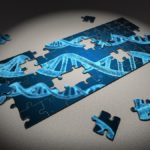What is Curriculum?
A metaphor
I see curriculum as the night sky, or more specifically, looking at the night sky. Both the “what” and “how” of curricular restrictions are influenced by context. The view of the night sky and the “what” of the exploration is dependent on geographical context. Much as regional curriculum attempts to box-in educators with a set of selected concepts, so too those in the northern hemisphere are limited to exploration of their portion of the sky (and even still it might seem overwhelming in its scope).
Context of the “what” moves beyond the section of the sky under view to include the lens from which it is viewed. Curricula changes reflect society, with the focus of the “what” shifting slightly to best prepare students with the knowledge of the future. Just as through history, viewers of the same section of night sky have shifted perspectives from astrology and mythology to astronomy and cosmology.
Context also influences the “how” of curricula. The use of astrolabes, telescopes, star charts, and now simulations and phone apps to make sense of the exploration of the night sky, is the move from instructivism and traditionalism to constructivism and connectivism, as teachers scaffold, support and encourage personalized learning within the “how” of curricula. And arguably the goal of all curricula is to provide students with transferable and relevant skills that support new learning. Just as understanding your section of the night sky, from any lens, helps you to make sense of a new section of night sky that may be revealed to you.
Image: By Greg Rakozy – free to use from UnSplash







Deirdre Houghton
July 7, 2020 — 9:30 pm
I really enjoyed reading your metaphor; it was descriptive, clear, insightful and to the point. Thank you for sharing, it was very well done!
Rene Schwarz
July 9, 2020 — 12:28 pm
A great way to see the what and how. I’m glad you included the lens of personal context, as it is and always will be students we teach first and our own expertise (subject knowledge and discipline) we pass on for the benefit of themselves and their communities.